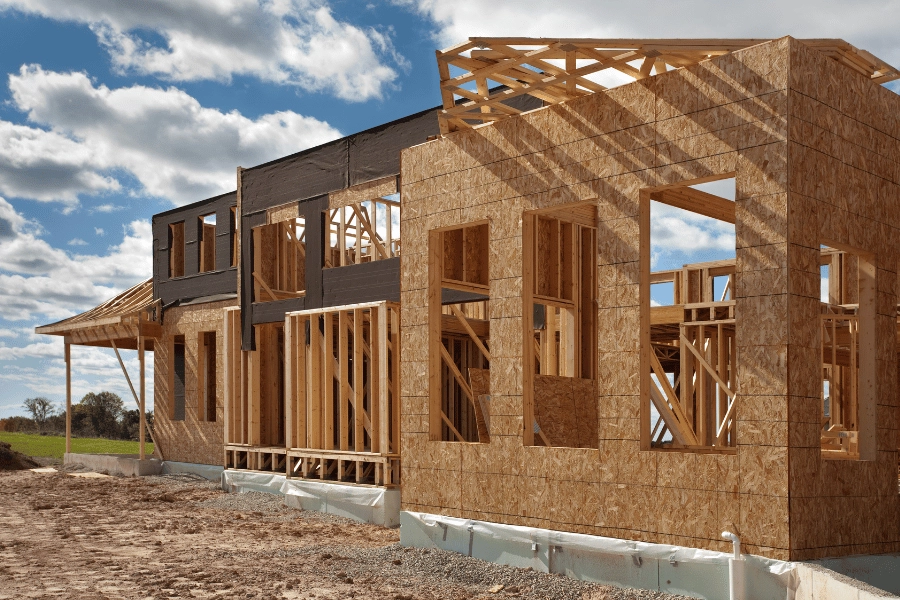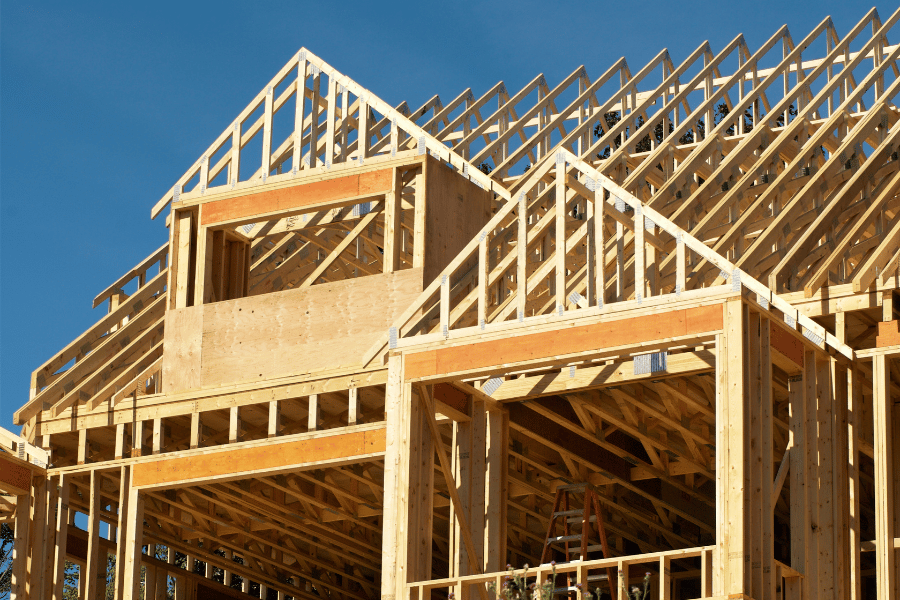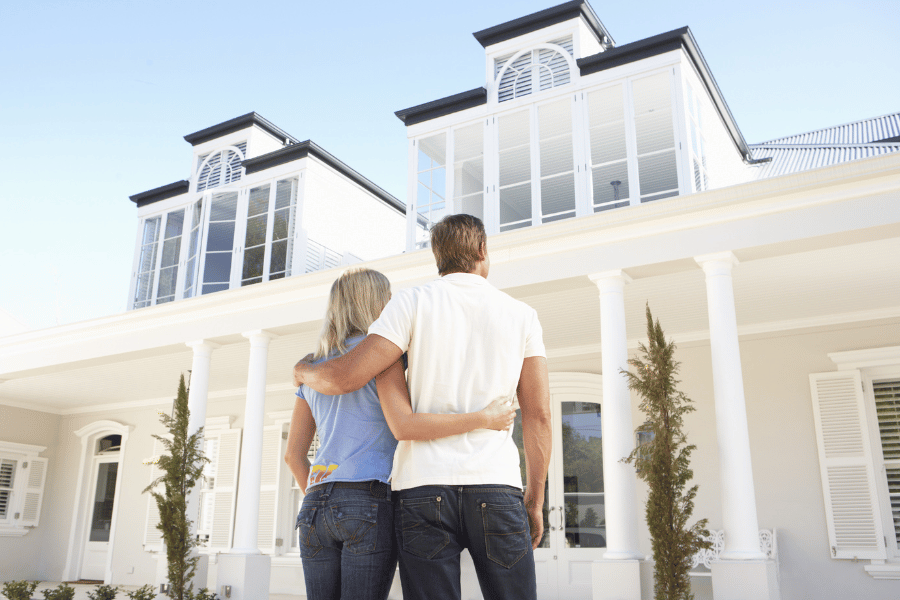Buying New Construction: Is it Better to Build a Custom Home or Purchase a Spec Home?
Are you deciding between building a custom home or purchasing a spec home? Here is everything you need to know in order to make the right choice between building custom or buying a spec home.
If you are considering new construction in the Raleigh area, you are likely weighing two primary options: building a custom home from the ground up or purchasing a spec home that's already under construction or recently completed.
Both paths offer the appeal of a brand-new home, but they come with distinctly different experiences, timelines, and considerations. Luckily, there is no right or wrong answer; it will all depend on what is best for you and your family.
At Raleigh Realty, we have guided countless families through this decision-making process. Understanding the nuances of each option will help you make the choice that best aligns with your lifestyle, budget, and timeline.
Keep reading to learn all about whether you should build a custom home or purchase a spec home.
1. What is a Spec Home?
A spec home, short for "speculative home," is a house built by a developer or builder without a specific buyer in mind. These homes are constructed based on popular floor plans and market research, with the builder "speculating" that buyers will be interested in the finished product.
Spec homes are typically built in planned communities or subdivisions and feature design choices made by the builder's team rather than individual homebuyers.
A spec home is typically move-in-ready, and some home builders even build multiple comparable homes in the same area. These homes are built to include what most home buyers are searching for. This can include popular amenities and upgraded appliances.
Spec homes generally cost less per square foot compared to customized homes. Good home builders usually choose floor plans that will fit the average buyer. A spec home is built to be attractive for the average home buyer. These are perfect for buyers who need a quick move-in process.
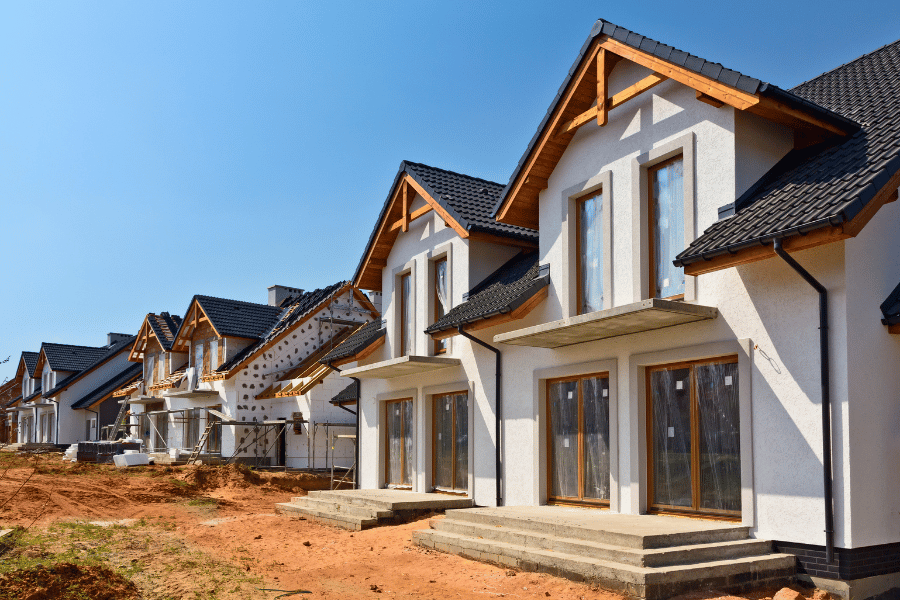
2. The Pros of Purchasing a Spec Home
Buying a spec home comes with many advantages; depending on your situation and needs, this type of home might be perfect for you.
Before making a decision, review these pros and cons to ensure you make the right choice when purchasing a spec home.
Faster Move-in Timeline
One of the most compelling benefits of buying a spec home is the accelerated timeline. While custom builds can take 8-12 months or longer, spec homes are often available within 3-6 months, depending on their stage of completion.
For families needing to relocate quickly or those eager to move out of rental properties, this speed advantage is significant.
Cost Predictability and Potential Savings
Spec homes typically come with fixed pricing, eliminating the uncertainty of cost overruns common in custom builds.
Builders often achieve economies of scale by purchasing materials in bulk and using standardized construction processes, potentially passing some savings on to buyers.
Additionally, you'll know the exact price upfront, making financing and budgeting more straightforward.
Hands-Off Process
Since spec homes are built for the average buyer, which means the builder has already made the major decisions. This is perfect for a buyer who doesn't have time or doesn't care for the minor details like the countertops, paint colors, and landscaping.
Spec homes eliminate the overwhelming decision-making process of a custom home, which can be particularly appealing for busy professionals or those who feel uncertain about design choices.
Warranty and Builder Relationships
Established builders typically offer comprehensive warranties on spec homes and have streamlined processes for addressing any post-move-in issues. The builder's reputation is directly tied to the spec home's quality, providing additional motivation for excellent craftsmanship.

3. The Cons of Purchasing a Spec Home
Like any decision, purchasing a spec home will come with some disadvantages. It will be up to you to decide if the cons outweigh the pros.
Limited Customization Options
The most significant limitation of spec homes is the lack of personalization. While you might be able to select from a few finish options if you buy early in construction, you're generally accepting someone else's vision of the ideal home layout and design.
You can decorate your heart out, but you will be limited on other major changes. Although spec home builders create homes based on the average buyer, this doesn't mean you will love every decision they make.
Potential for Compromises
Since spec homes are designed for broad market appeal, certain features might not align perfectly with your family's specific needs. You might love the kitchen but wish the primary bedroom were larger, or appreciate the open floor plan but need a dedicated home office.
Less Control Over Quality
While reputable builders maintain high standards, you have less oversight of the construction process compared to a custom build, where you can be more involved in monitoring quality and progress.
Market Timing Risks
If you are purchasing a spec home that is not yet complete, you are subject to the same construction delays and market fluctuations as custom builds, but with less control over the timeline and fewer options if issues arise.
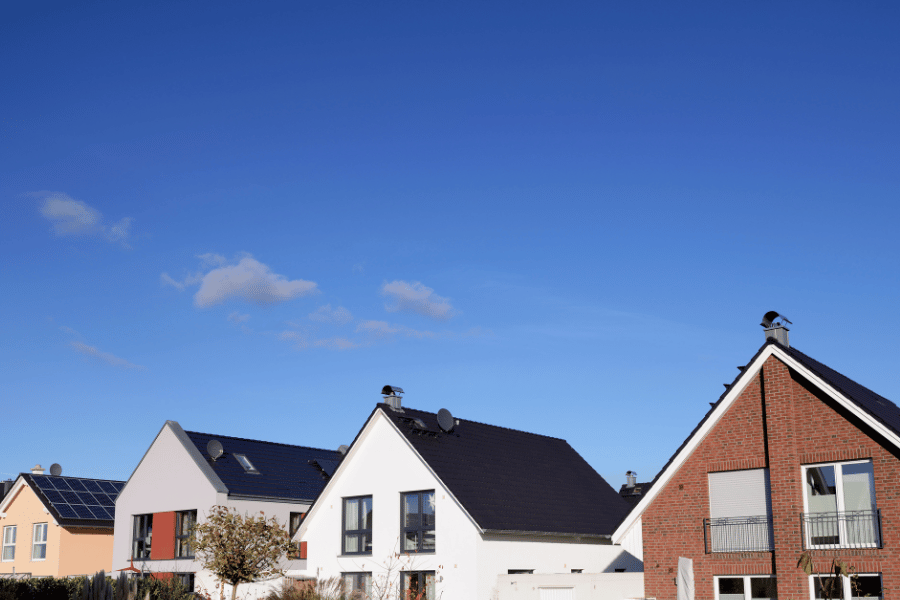
4. The Pros of Building a Custom Home
If you want more freedom to create a unique home, building a home might be the best option, especially if you want a home that is handicap accessible. This option will allow for a lot of creativity and personalization on your part.
Building a home is becoming increasingly popular, with over 1,354,000 new residential construction houses in 2025 across the country.
Complete Personalization
The number one reason home buyers are deciding to build a home instead of purchase one is the freedom to personalize it how they see fit. You will have complete control over the home. You can add any features you want, from a beautiful inground pool to that reading nook you have always wanted.
Building custom allows you to create a home that perfectly matches your lifestyle, preferences, and needs. Ensure you are working with trustworthy architects and contractors to create the home of your dreams.
Avoid Bidding Wars
The housing market is competitive, but it is also extremely hard to predict. If you build your own home, you'll get to avoid bidding wars all around. The process may be stressful, but you will start by buying a piece of land.
Buying land is typically much easier when the undeveloped land does not attract the same quantity of buyers as developed land. This is a great option for buyers who want to live in a more rural area with open land.
Lot Selection Freedom
Custom building often provides more flexibility in choosing your lot, allowing you to prioritize factors like view, privacy, proximity to schools, or specific neighborhood characteristics that matter most to you.
Quality Control and Oversight
As the homeowner, you have direct involvement in the construction process, including the ability to inspect work at various stages, make real-time decisions about materials and methods, and ensure quality standards meet your expectations.
Long-Term Value Optimization
Custom homes can be designed with specific features that enhance long-term value and functionality for your family, such as aging-in-place considerations, energy efficiency upgrades, or spaces designed for specific hobbies or work requirements.
Builder Selection
You have the freedom to research and select a builder based on your specific priorities, whether that's craftsmanship quality, communication style, specialty expertise, or pricing structure.
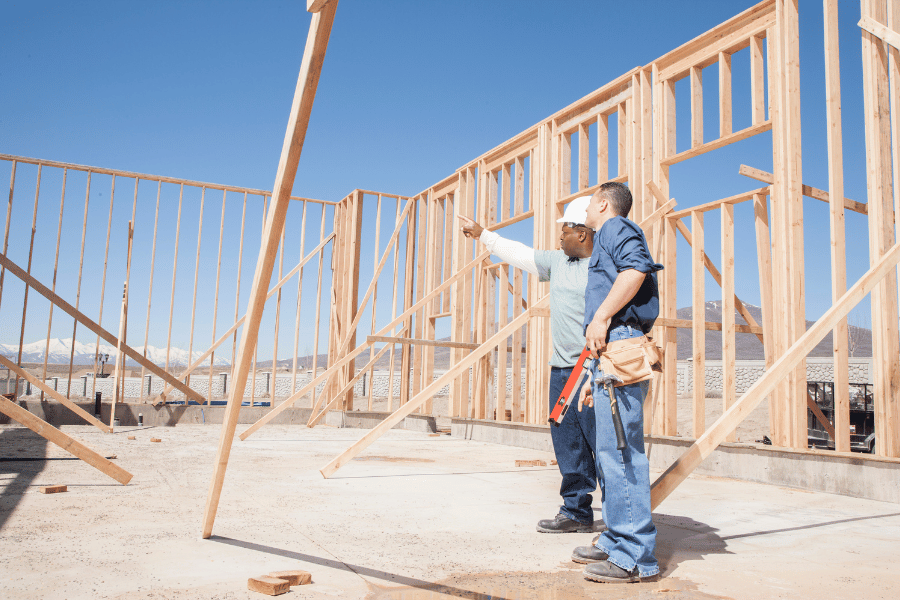
5. The Cons of Building a Custom Home
Building a home will be a strenuous process and can bring on a lot of stress. However, it is usually all worth it in the end. Nevertheless, building your home will come with its own disadvantages.
Extended Timeline
Custom homes typically take 8-12 months or longer to complete, and delays due to weather, material availability, or change orders are common. This extended timeline requires patience and often temporary housing arrangements.
The longer process coincides with more costs. This does not even account for the rent you may be paying for your current housing and any extra costs along the way.
Decision Overload
Building custom requires making hundreds of decisions throughout the process, from major structural elements to minor finish details. This can be overwhelming and time-consuming, particularly for first-time builders.
These decisions may take time, and if you are busy with work, family, or life, it can be hard to find the right balance.
Cost Uncertainty
While there are many hidden costs when buying a home, building your own will be no different. Most likely, you'll start the process with a budget in mind, but be prepared to surpass it.
Custom builds are more susceptible to cost overruns due to change orders, material price fluctuations, and unforeseen construction challenges.
It is recommended to have extra savings for the expenses you didn't anticipate. Even with detailed contracts, final costs often exceed initial estimates.
Increased Involvement and Stress
Custom building requires significant time investment in meetings, site visits, and decision-making. The responsibility for coordinating various aspects of the build can be stressful, particularly if issues arise during construction.
Financing Complexity
Construction loans for custom homes typically require larger down payments, have different qualification requirements, and involve more complex approval processes compared to traditional mortgages for spec homes.
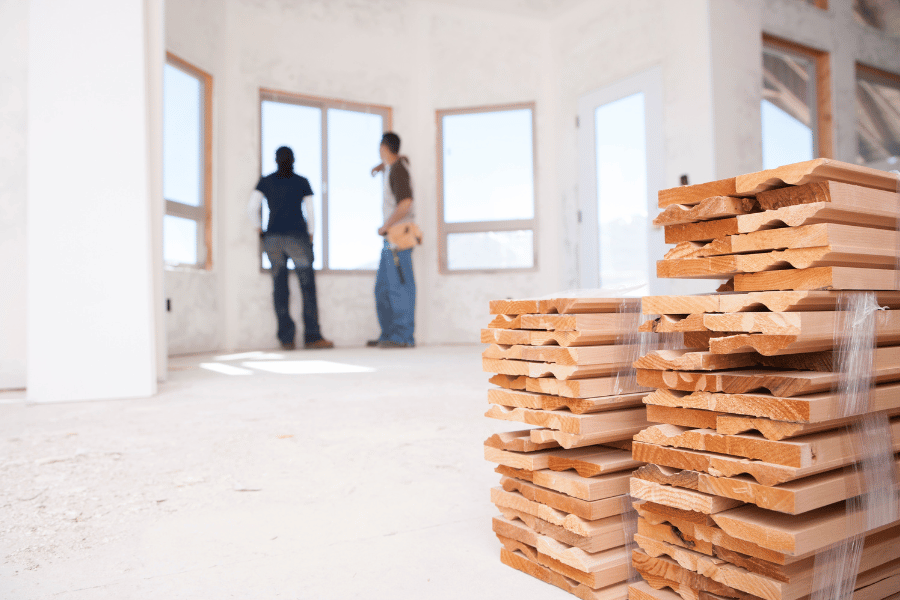
Methodology
Data was sourced from the U.S. Census Bureau and the North Carolina Office of State Budget and Management to determine the pros and cons of building a custom home or buying a spec home.
FAQs
Here are some commonly asked questions about whether it is better to build a home or purchase a spec home.
Is building a spec home a good investment?
Building a spec home will have its own risks and returns. On the one hand, the profit margin can be high, but it may take patience to see the return on your investment. However, you will need to have a good sense of finance and real estate to make your money back.
Do builders negotiate on spec homes?
Builders usually construct many spec homes with comparable sizes. This means each home will most likely go for the same amount, and they will not want to negotiate with you. However, you can always try, and depending on the builder and your real estate knowledge, you may be able to negotiate on a spec home.
Is it better to buy a house or build?
This is not a one-size-fits-all answer, and it will be completely up to you which would be better. On average, it is cheaper to buy an existing home, and a home loan is much less risky.
Why do builders build spec homes?
Spec homes are typically used to showcase a builder's specific skill set that attracts the most buyers. Most buyers are also attracted to spec homes because they offer a blend of convenience and customization.
What is another name for a spec home?
A spec home can also be known as an inventory, showcase, or feature home. No matter the name, they are all new move-in-ready homes.
New Construction Pros and Cons - The Bottom Line
The decision between building custom and buying a spec home ultimately depends on your priorities, timeline, and tolerance for involvement in the construction process.
North Carolina is a great place for new home builds due to its strong population growth and robust economy. With one of the fastest housing increases in the country, North Carolina has the fourth largest growth in the nation for new housing.
Whether you decide to build custom or purchase a spec home, having experienced representation is crucial. Our team understands the Raleigh new construction market, maintains relationships with reputable builders, and can guide you through either process to ensure your interests are protected.
If you are searching for your next home in Raleigh, which is one of the fastest-growing areas in the country with many beautiful homes for sale, you'll have to act fast if you want to buy your next home in one of Raleigh's best neighborhoods.
Are you ready to explore your new construction options in Raleigh? Contact our team today to discuss your goals and begin the journey to your new home.
